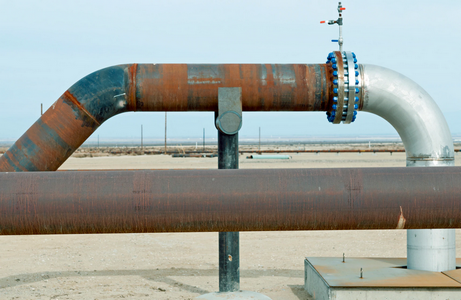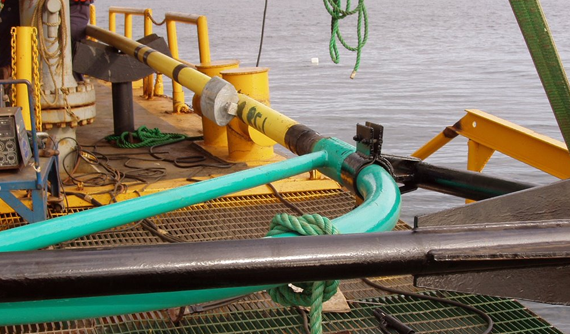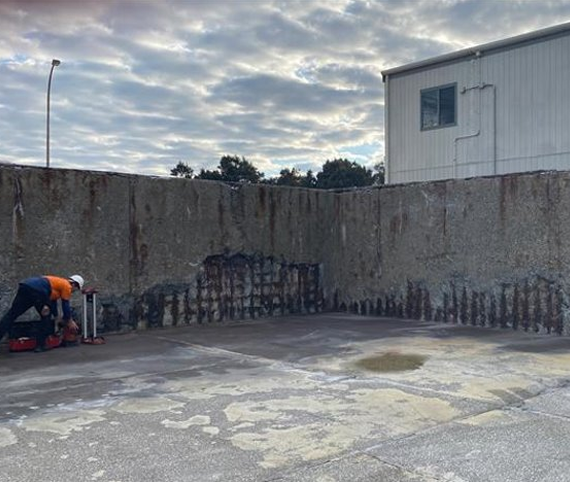
Corrosion Assessment
Steel corrosion is the main source of damage and early failure of reinforced concrete structures and steel made assets that in turns create huge economical loss and environmental problems.
BCRC has wide experience in corrosion assessments techniques such as half-cell potential, concrete resistivity measurements, gravimetric weight loss measurement, electrical resistivity, sensors and electrochemical methods, for instance, potentiodynamic polarization, linear polarization resistance (LPR), galvanostatic pulse, and electrochemical impedance. The electrochemical techniques are non-destructive and are used to determine the corrosion rate of steel in the laboratory as well as field surveys.
Corrosion tests are usually divided into two main categories: laboratory tests and field tests. Corrosion coupons, ultrasonic thickness monitoring and electrical resistance testing are some of the field tests BCRC can provide.
Ultimately, a proper corrosion monitoring program also requires risk assessment and needs a clear set of objectives. Corrosion monitoring devices must be placed at locations where the system experiences the highest corrosion risk, and therefore highly skilled and experienced technicians and engineers are required to perform this work.

Cathodic Protection -Design and monitoring
Cathodic protection is a very standardise and normalised corrosion control method. Our professionals in the area are NACE certified and have a wide range of experience in a variety of steel applications and assets that requires CP.
Most of the causes of failure in CP systems are due to poor considerations during the design phase of the project then also lack a monitoring and maintenance program contributes largely to the underperformance of these systems. Customized and robust design with a comprehensive monitoring program is crucial to obtain the expected benefits of using CP systems as a corrosion control method.
Corrosion field testing
Corrosion field testing must be performed by specialized and well-experienced engineers and technicians. At BCRC, we have a team with the academic training, certifications, field experience and advanced testing tools to identify corrosion mechanisms on site.
These are the tests and surveys we can provide you with:
- CP troubleshooting and assessment.
- Potential and current surveys with assessment on the structure and anodes.
- Direct current voltage gradient surveys (DCVG) and Close interval potential surveys (CIPS).
- Electrical interference testing
- Resistivity test.
- Physicochemical characterization of soils, water, and electrolytes.
- Half cell potential survey in concrete.
- Failure and root cause analysis in metals.
Our mission is to help you avoiding the failure of your asset or system and extending its life with the most efficient, competitive, optimized, and available solution.
Corrosion has massive cost implications to almost every industry that relies on metallic equipment and structures. A customized testing program will help to avoid any unplanned maintenance and the associated direct and indirect costs. BCRC can provide specific corrosion evaluations and protocols with recommendations and solutions based on best practices based on Australian and international standards to maintain the design life of your asset with the minimum maintenance and repair costs.
Field testing not only covers identification of corrosion on site but also the troubleshooting of problems and issues present in the corrosion control systems put in place such as cathodic protection and coatings. BCRC has a wide range of tools and the professional expertise to assist on these requirements while providing you with a comprehensive report which will describe the guidelines and corrections to consider for the operation and maintenance of your corrosion control systems.



